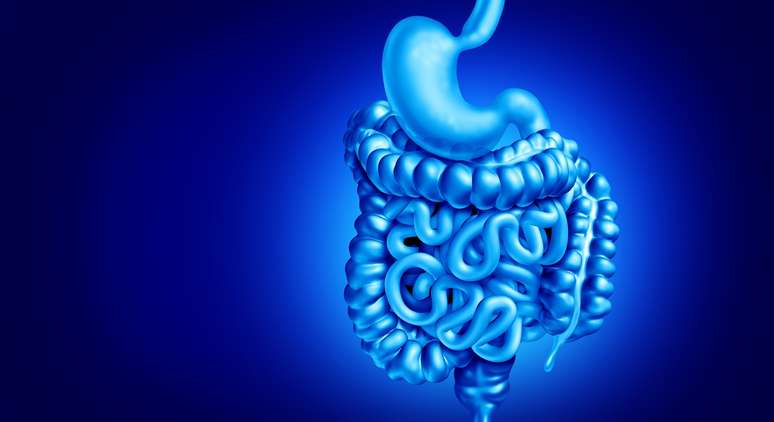Journalist Evaristo Costa was hospitalized due to inflammatory bowel disease (IBD)
Crohn’s disease is a type of inflammatory bowel disease (IBD) that, as the name suggests, results from inflammatory processes in the intestine and possibly other regions of the gastrointestinal tract. These diseases affect more than 5 million people worldwide and, in Brazil, the prevalence is between 12 and 55 cases per 100 thousand inhabitants, according to data from the Brazilian Society of Coloproctology.
Celebrities such as journalist Evaristo Costa, actor Tyler James Williams, who gave life to the character Chris in the series “Everybody Hates Chris”, singer Anastacia have already revealed that they have Crohn’s disease.
Possible causes
IBD is caused by an inadequate inflammatory immune response to altered microbiota in genetically predisposed individuals. This means that several factors can contribute to the onset of these diseases, which can be understood as follows:
- Genetics
- Environmental factors to which the individual is exposed and which can influence genetic factors and the intestinal microbiota (or flora), such as smoking, a diet low in fiber and rich in animal proteins and fatty foods, frequent use of anti-inflammatory drugs and antibiotics, vitamin D deficiency, pollution, stress and recurrent infections.
- Microbiome: IBD patients generally have a reduction in “good” bacteria present in the gastrointestinal tract, with lower biodiversity and proliferation of pathogenic bacteria. Antibiotic use in the first two years of life, lack of exclusive breastfeeding, and hygiene theory (which is based on excessive care of hygiene and related factors) can deregulate the microbiome.
- Immunological problems: Some of the body’s immune responses fail in people with IBD, with a more intense proinflammatory response and a smaller anti-inflammatory response, causing an imbalance between them.
Crohn’s disease x ulcerative colitis
Ulcerative colitis is another very common IBD, but it only affects the mucosa (the layer that lines the inside of the gastrointestinal tract). It appears in the rectum, ascending through the large intestine with continuing damage.
The classification of the severity of colitis takes into account the number of daily bowel movements, the presence of bleeding in the stool, fever, changes in heart rate, the presence of anemia and changes in the erythrocyte sedimentation rate test, carried out in the laboratory. Depending on this classification, the doctor can propose a more appropriate treatment.
In Crohn’s disease the inflammatory process affects both the more superficial layers (mucosa and submucosa) and the deeper layers (muscular and serous) that make up the organs of the gastrointestinal tract. When multiple internal layers are affected, fistulas (a kind of improper hole connecting previously separate parts) may appear in the intestine. Additionally, lesions in Crohn’s disease appear sparsely, with both damaged and healthy areas, and can appear throughout the gastrointestinal tract, from the mouth to the anus.
signs and symptoms
The signs and symptoms of IBD depend on several factors related to the disease, such as location and extent of the lesions, duration, degree of inflammatory activity and the appearance of complications. The main symptoms are generally:
- abdominal pain and diarrhea
- weight loss
- stools with mucus, pus or blood
- tenesmus (feeling of incomplete evacuation)
- urgency to evacuate
In more advanced cases, periods of intestinal constipation may also occur, with failure to evacuate and eliminate gas, abdominal distension and vomiting. Additionally, women who have fistulas may pass stool through the vagina. In these cases, recurrence of urinary tract infections is common.
Up to 30% of people with IBD may experience extraintestinal manifestations, such as joint pain, skin lesions, oral ulcers, and ophthalmological changes. In people with ulcerative colitis, rheumatological manifestations, such as arthralgia (joint pain), can reach up to 60% and may indicate disease activity.
Diagnosis
The diagnosis of inflammatory bowel diseases depends on a careful medical evaluation, which takes into account the clinical history (anamnesis) and physical examination. From there he may order some tests that help confirm the diagnosis, such as colonoscopy and pathology.
Laboratory tests can also highlight anemia, vitamin and mineral deficiencies, such as iron and folic acid and, above all, measure fecal calprotectin. It is a protein dosed in feces that is highly sensitive to inflammatory diseases of the gastrointestinal tract. Although it is not specific for IBD, it is useful for screening for these diseases and differentiating them from other clinical conditions.
Treatment
Since it is a chronic disease, treatment aims to heal the mucosa so that complications, such as fistulas and strictures, do not occur, as well as reducing symptoms. For this, drugs may be indicated depending on the complexity of the clinical condition. In general, immunosuppressive drugs are used.
Topical anti-inflammatories and corticosteroids can be used to reduce the inflammatory process in people in crisis (generally with a lot of diarrhea and abdominal pain), but they do not heal the mucosa. In addition to drug therapy, in cases where there is fibrosis of parts of the gastrointestinal tract or fistulas, surgery may be necessary.
People being treated for inflammatory bowel disease are considered immunosuppressed and are therefore at greater risk of developing infections. To avoid this, it is important to pay attention to health as a whole and in particular to vaccines, as this group is prioritized in some cases.
Source: Terra
Ben Stock is a lifestyle journalist and author at Gossipify. He writes about topics such as health, wellness, travel, food and home decor. He provides practical advice and inspiration to improve well-being, keeps readers up to date with latest lifestyle news and trends, known for his engaging writing style, in-depth analysis and unique perspectives.









